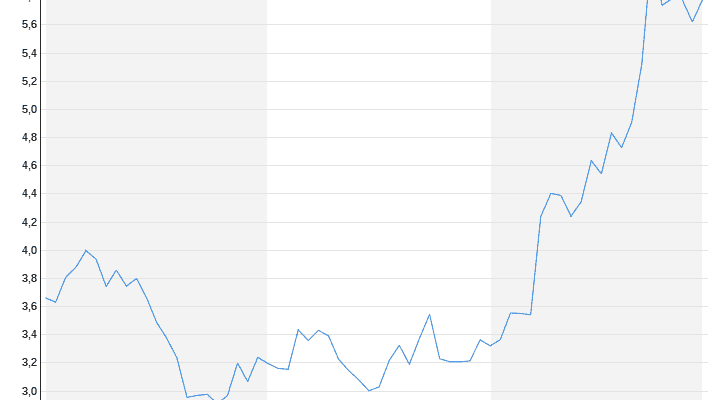Tuesday, December 01, 2020
Tourism has had a very bad year. Massive travel warnings and cancellations result in billions in lost sales. Now the travel industry is hoping for the New Year and that the Germans want to catch up on what they had to do without. In some places it could even be tight.
The people in Germany are in a travel mood, but so far tourism, which has been hard hit by the Corona crisis, has hardly benefited from it – the uncertainty is too great. People don't forego traveling because they don't want to, "but because they can't. The demand is potentially there," says industry expert Martin Lohmann. So far, there are indications that primarily destinations in Germany and neighboring countries that can be reached by car, bus or train are in demand. In some places it could even be tight.
"We are seeing high demand for earthbound trips in the summer. It is possible that not everyone will get their dream hotel if they book later," reports Ingo Burmester, Head of Central Europe at DER Touristik. Industry leader Tui points out that "not all of the volume that would otherwise have gone abroad can be absorbed here in Germany". In the pre-crisis year 2019, according to the travel association DRV, almost 74 percent of holiday trips were abroad.
Vaccine message increases booking requests
However, many sun seekers still hesitate to book for the best weeks of the year. "Constant changes to the entry modalities and travel warnings are still causing a reluctance to book," says FTI Group Managing Director Ralph Schiller. After all: "Since the news was announced that there will be a vaccine against the coronavirus this winter, the booking inquiries have increased significantly. This shows us that people definitely want to travel again."
"The bookings are made much more quickly," says Andreas Rüttgers, Head of Air Tourism at Schauinsland-Reisen. Disproportionately often vacation facilities in direct beach and sea location are booked.
In order to stimulate the desire to travel among German citizens, organizers lure with low-priced early bird discounts, the possibility of free cancellations and rebookings as well as hygiene concepts for travel and accommodation. Because the Corona crisis year has torn deep holes in the balance sheets that need to be stuffed. According to DRV calculations, the loss of sales by German tour operators and travel agencies will add up to 28 billion euros by the end of this year. Industry giants such as Tui and the third largest organizer FTI needed help from the state economic stabilization fund.
Industry expects catch-up effects
The industry is expecting catch-up effects because many people did not go on holiday during the pandemic. Ultimately, however, a recovery depends on factors that it cannot influence. Politicians are required to deal sensitively with travel warnings and travel advice, warns DRV President Norbert Fiebig. "A zigzag course, as seen in the current year, not only unsettles those willing to take a vacation, but also companies and stifles the existing desire to travel in the bud." Tui also wants more conclusive information – regionally if possible, not for entire countries.
Even if business picks up after the restrictions come to an end, Fiebig believes it will take a year or two to reach pre-crisis levels. In his opinion, the package tour has a particular advantage, "as it offers holidaymakers additional security, especially in uncertain times". Travel agencies would also benefit due to the increased need for advice of customers in Corona times.
Not all providers are likely to survive
Nevertheless, hardly all tour operators and travel agencies are likely to survive the shock. If the restrictions are maintained until spring, "in some cases the state support will not be sufficient because the running costs without a business are too high in the long run", fears tourism expert Torsten Kirstges. The professor at Jade University in Wilhelmshaven estimates that around ten percent of the around 11,000 travel agencies and around 50 to 100 tour operators in Germany could be at risk.
According to the findings of the Research Association for Holidays and Travel (FUR), the desire for vacation among people in Germany has been largely constant for years. Nothing fundamentally changed in the pandemic, explains Lohmann, head of the Institute for Tourism Research in Northern Europe (NIT) and scientific advisor to the FUR. "The products of the travel industry don't need a revolution."
"Cruises will boom again"
According to Kirstges, this also applies to cruises, which were an important growth driver in the past. "Cruises will boom again." In principle, he does not consider the business model to be threatened. FTI discontinued the business operations of the tour operator FTI Cruises on October 31st. Tui, on the other hand, expects "that we will be able to start business again next year and have the entire fleet in circulation". Since the end of July, more than 45,000 guests have been traveling on Tui Cruises ships in Germany, Greece and the Canary Islands.
And when the longed-for recovery comes? "Then business has to be ramped up again quickly," says Kirstges. "The loss of qualified employees – be it because they were laid off or because they were looking for a new job – could then put some strain on the industry."
. (tagsToTranslate) Economy (t) Tourism industry (t) Tour operator (t) Travel destinations (t) Corona crisis (t) Corona measures (t) Cruise ships (t) TUI
